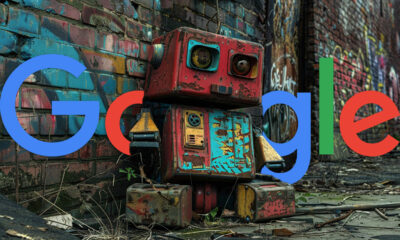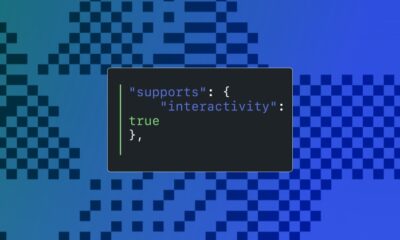Google: Site Quality Can Cause Loss of Rich Results

Google’s John Mueller answered a question about a site that lost it’s rich results display and wanted to know why Google took them away and if the rich results would ever return.
The question was asked at the 52:26 minute mark of the Google After-hours hangout.
But because it was a two-part question, the answer wasn’t given to this second part until after John finished answering the first part. So the answer comes three minutes later at the 55:19 minute mark.
Rich Results Removed After Site Redesign
There are many anecdotal reports of site redesigns that go bad, work out great or turn out neutral with no change in rankings.
This is a question about a site redesign that coincided with a loss of rich results.
They tested their schema markup to see if there was a technical problem but the markup passed all the tests.
It’s hard to fix something when you don’t know what is wrong, so the person asking the question just wants an idea of what direction they should go with this.
Google’s John Mueller Discussing Rich Results
 This is the question, part two of a two-part question:
This is the question, part two of a two-part question:
“Another customer they just redesigned their website. It’s still the same CMS and content.
And after that, all of our FAQ schemas stopped being displayed in Google Search results.
And this is three months old now and we still are not there., even everything being passing on the rich results test and inspection tool.
Why did that happen and when should I expect to see FAQ being displayed again or if it will ever be?”
Related: Why Google May Remove a Site’s FAQ Rich Results
Loss of Rich Results Might be Coincidental
John Mueller answered the question, at one point suggesting that it’s possible that changes on the site might not have caused the loss of rich results.
But he also mentions re-evaluating the site for quality.
John Mueller answered:
“I think there are two things that might have happened… It’s hard to say offhand.
One is that we might have re-evaluated the quality of your website overall at about the same time that you made those changes.
It’s probably more of a coincidence if that were the case.
But it could be that we kind of like are not that convinced about this website anymore.
And if we’re not convinced about the website, then usually we don’t show any rich results. And that would include the FAQs.”
Related: 12 Reasons Why Your Rich Snippets Aren’t Showing
Site Quality Can Affect Rich Results Eligibility
That is a useful insight, that something about a redesign could trigger a re-evaluation of site quality.
That’s something that is not widely known and can be useful for diagnosing why a rich result stopped showing.
Related: Google Offers a Definition of Quality Content
John Mueller Hack for Rich Results Quality Check
John next suggested a way to check if the rich results are missing because of a technical issue or because Google is “not convinced” about the site.
Mueller continued:
“So one way to kind of double-check that is if you do a site query for these individual pages, do the rich results show up there or not?
If they do show up there then that means technically we can recognize them but we don’t want to show them.
So that’s kind of a hint that maybe from a quality point of view you need to improve things.
If they don’t show up with a site query then that means more that there’s still something technical which is broken with regards to that.”
There is No Fixed Delay After a Redesign
After a site is redesigned, if everything otherwise stays the same then Google generally will crawl it like usual and there shouldn’t be a disruption if any, as the old site is gradually replaced in Google’s index by the new site.
Mueller finished his answer:
“So it’s not that there is a fixed delay, after restructuring of a website, for us to start showing them again.
It’s more like… maybe there was coincidentally weird timing or maybe there’s a technical issue.”
Regarding the site query test he suggested, Mueller cautioned that it’s not absolutely reliable.
He said:
“Yeah, it’s not 100% perfect. But it works for a lot of these cases when it comes to rich results.”
The Site Query Hack
A site query is a search that looks like this:
site:example.com Example Keywords
A site query doesn’t use Google’s regular ranking algorithm. It’s not known what it uses but it is known that it’s not the same as a regular search query, which is the case for all of the advanced search queries. It’s just a simple search of a single website.
It’s not every day that Mueller offers a convenient way to check what’s wrong with a site. Although he did say that it’s not 100% though.
The important takeaway is that site quality can be the reason why rich results don’t show on Google. What might be interesting is to check if the rich results show on Bing, because Bing also has rich results.
Related: An SEO Guide to Advanced Google Search Operators
Citation
Poor Site Quality Can Cause Rich Results Removal
Watch John Mueller provide reasons for losing rich results at the 55:19 minute mark (part of two-part question from 52:26 minute mark)
AI
Exploring the Evolution of Language Translation: A Comparative Analysis of AI Chatbots and Google Translate

According to an article on PCMag, while Google Translate makes translating sentences into over 100 languages easy, regular users acknowledge that there’s still room for improvement.
In theory, large language models (LLMs) such as ChatGPT are expected to bring about a new era in language translation. These models consume vast amounts of text-based training data and real-time feedback from users worldwide, enabling them to quickly learn to generate coherent, human-like sentences in a wide range of languages.
However, despite the anticipation that ChatGPT would revolutionize translation, previous experiences have shown that such expectations are often inaccurate, posing challenges for translation accuracy. To put these claims to the test, PCMag conducted a blind test, asking fluent speakers of eight non-English languages to evaluate the translation results from various AI services.
The test compared ChatGPT (both the free and paid versions) to Google Translate, as well as to other competing chatbots such as Microsoft Copilot and Google Gemini. The evaluation involved comparing the translation quality for two test paragraphs across different languages, including Polish, French, Korean, Spanish, Arabic, Tagalog, and Amharic.
In the first test conducted in June 2023, participants consistently favored AI chatbots over Google Translate. ChatGPT, Google Bard (now Gemini), and Microsoft Bing outperformed Google Translate, with ChatGPT receiving the highest praise. ChatGPT demonstrated superior performance in converting colloquialisms, while Google Translate often provided literal translations that lacked cultural nuance.
For instance, ChatGPT accurately translated colloquial expressions like “blow off steam,” whereas Google Translate produced more literal translations that failed to resonate across cultures. Participants appreciated ChatGPT’s ability to maintain consistent levels of formality and its consideration of gender options in translations.
The success of AI chatbots like ChatGPT can be attributed to reinforcement learning with human feedback (RLHF), which allows these models to learn from human preferences and produce culturally appropriate translations, particularly for non-native speakers. However, it’s essential to note that while AI chatbots outperformed Google Translate, they still had limitations and occasional inaccuracies.
In a subsequent test, PCMag evaluated different versions of ChatGPT, including the free and paid versions, as well as language-specific AI agents from OpenAI’s GPTStore. The paid version of ChatGPT, known as ChatGPT Plus, consistently delivered the best translations across various languages. However, Google Translate also showed improvement, performing surprisingly well compared to previous tests.
Overall, while ChatGPT Plus emerged as the preferred choice for translation, Google Translate demonstrated notable improvement, challenging the notion that AI chatbots are always superior to traditional translation tools.
Source: https://www.pcmag.com/articles/google-translate-vs-chatgpt-which-is-the-best-language-translator
Google Implements Stricter Guidelines for Mass Email Senders to Gmail Users

Beginning in April, Gmail senders bombarding users with unwanted mass emails will encounter a surge in message rejections unless they comply with the freshly minted Gmail email sender protocols, Google cautions.
Fresh Guidelines for Dispatching Mass Emails to Gmail Inboxes In an elucidative piece featured on Forbes, it was highlighted that novel regulations are being ushered in to shield Gmail users from the deluge of unsolicited mass emails. Initially, there were reports surfacing about certain marketers receiving error notifications pertaining to messages dispatched to Gmail accounts. Nonetheless, a Google representative clarified that these specific errors, denoted as 550-5.7.56, weren’t novel but rather stemmed from existing authentication prerequisites.
Moreover, Google has verified that commencing from April, they will initiate “the rejection of a portion of non-compliant email traffic, progressively escalating the rejection rate over time.” Google elaborates that, for instance, if 75% of the traffic adheres to the new email sender authentication criteria, then a portion of the remaining non-conforming 25% will face rejection. The exact proportion remains undisclosed. Google does assert that the implementation of the new regulations will be executed in a “step-by-step fashion.”
This cautious and methodical strategy seems to have already kicked off, with transient errors affecting a “fraction of their non-compliant email traffic” coming into play this month. Additionally, Google stipulates that bulk senders will be granted until June 1 to integrate “one-click unsubscribe” in all commercial or promotional correspondence.
Exclusively Personal Gmail Accounts Subject to Rejection These alterations exclusively affect bulk emails dispatched to personal Gmail accounts. Entities sending out mass emails, specifically those transmitting a minimum of 5,000 messages daily to Gmail accounts, will be mandated to authenticate outgoing emails and “refrain from dispatching unsolicited emails.” The 5,000 message threshold is tabulated based on emails transmitted from the same principal domain, irrespective of the employment of subdomains. Once the threshold is met, the domain is categorized as a permanent bulk sender.
These guidelines do not extend to communications directed at Google Workspace accounts, although all senders, including those utilizing Google Workspace, are required to adhere to the updated criteria.
Augmented Security and Enhanced Oversight for Gmail Users A Google spokesperson emphasized that these requisites are being rolled out to “fortify sender-side security and augment user control over inbox contents even further.” For the recipient, this translates to heightened trust in the authenticity of the email sender, thus mitigating the risk of falling prey to phishing attempts, a tactic frequently exploited by malevolent entities capitalizing on authentication vulnerabilities. “If anything,” the spokesperson concludes, “meeting these stipulations should facilitate senders in reaching their intended recipients more efficiently, with reduced risks of spoofing and hijacking by malicious actors.”
Google’s Next-Gen AI Chatbot, Gemini, Faces Delays: What to Expect When It Finally Launches

In an unexpected turn of events, Google has chosen to postpone the much-anticipated debut of its revolutionary generative AI model, Gemini. Initially poised to make waves this week, the unveiling has now been rescheduled for early next year, specifically in January.
Gemini is set to redefine the landscape of conversational AI, representing Google’s most potent endeavor in this domain to date. Positioned as a multimodal AI chatbot, Gemini boasts the capability to process diverse data types. This includes a unique proficiency in comprehending and generating text, images, and various content formats, even going so far as to create an entire website based on a combination of sketches and written descriptions.
Originally, Google had planned an elaborate series of launch events spanning California, New York, and Washington. Regrettably, these events have been canceled due to concerns about Gemini’s responsiveness to non-English prompts. According to anonymous sources cited by The Information, Google’s Chief Executive, Sundar Pichai, personally decided to postpone the launch, acknowledging the importance of global support as a key feature of Gemini’s capabilities.
Gemini is expected to surpass the renowned ChatGPT, powered by OpenAI’s GPT-4 model, and preliminary private tests have shown promising results. Fueled by significantly enhanced computing power, Gemini has outperformed GPT-4, particularly in FLOPS (Floating Point Operations Per Second), owing to its access to a multitude of high-end AI accelerators through the Google Cloud platform.
SemiAnalysis, a research firm affiliated with Substack Inc., expressed in an August blog post that Gemini appears poised to “blow OpenAI’s model out of the water.” The extensive compute power at Google’s disposal has evidently contributed to Gemini’s superior performance.
Google’s Vice President and Manager of Bard and Google Assistant, Sissie Hsiao, offered insights into Gemini’s capabilities, citing examples like generating novel images in response to specific requests, such as illustrating the steps to ice a three-layer cake.
While Google’s current generative AI offering, Bard, has showcased noteworthy accomplishments, it has struggled to achieve the same level of consumer awareness as ChatGPT. Gemini, with its unparalleled capabilities, is expected to be a game-changer, demonstrating impressive multimodal functionalities never seen before.
During the initial announcement at Google’s I/O developer conference in May, the company emphasized Gemini’s multimodal prowess and its developer-friendly nature. An application programming interface (API) is under development, allowing developers to seamlessly integrate Gemini into third-party applications.
As the world awaits the delayed unveiling of Gemini, the stakes are high, with Google aiming to revolutionize the AI landscape and solidify its position as a leader in generative artificial intelligence. The postponed launch only adds to the anticipation surrounding Gemini’s eventual debut in the coming year.
-

 WORDPRESS7 days ago
WORDPRESS7 days agoTurkish startup ikas attracts $20M for its e-commerce platform designed for small businesses
-

 MARKETING6 days ago
MARKETING6 days agoRoundel Media Studio: What to Expect From Target’s New Self-Service Platform
-

 SEO6 days ago
SEO6 days agoGoogle Limits News Links In California Over Proposed ‘Link Tax’ Law
-
SEARCHENGINES6 days ago
Daily Search Forum Recap: April 12, 2024
-

 SEARCHENGINES7 days ago
SEARCHENGINES7 days agoGoogle Search Results Can Be Harmful & Dangerous In Some Cases
-

 SEO5 days ago
SEO5 days ago10 Paid Search & PPC Planning Best Practices
-

 SEARCHENGINES5 days ago
SEARCHENGINES5 days agoGoogle Core Update Volatility, Helpful Content Update Gone, Dangerous Google Search Results & Google Ads Confusion
-

 SEO6 days ago
SEO6 days agoGoogle Unplugs “Notes on Search” Experiment















You must be logged in to post a comment Login